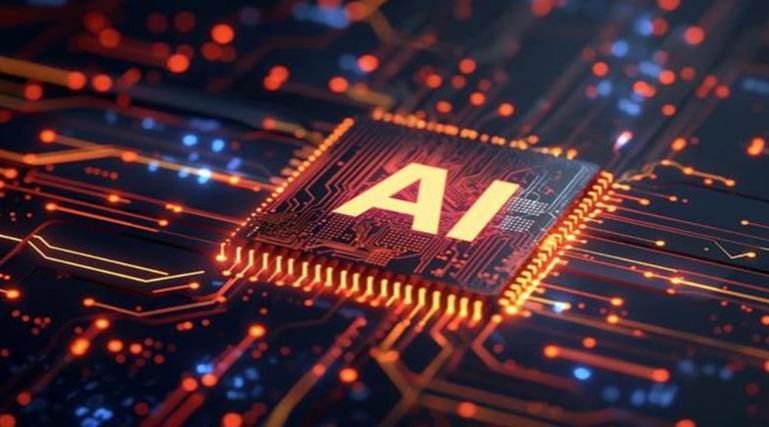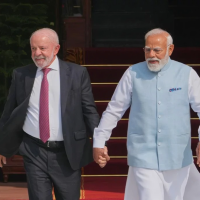U.S. AI Edge at Risk? Trump Sparks Outcry Over National Security and Tech Leadership

The Trump administration’s recent decision to allow the sale of advanced Nvidia artificial intelligence (AI) chips to China has ignited bipartisan backlash and raised concerns among national security and technology experts. Critics warn the reversal undermines U.S. technological leadership and jeopardizes national interests all for the short-term gains of a single American chipmaker.
Last month’s policy shift marked a dramatic U-turn from the administration’s earlier stance, which had imposed strict export controls on advanced semiconductor equipment and AI chips, particularly Nvidia’s high-end models. Those restrictions were widely seen as a strategic move to slow China’s rapid advancement in AI and military capabilities.
But now, the administration has cleared Nvidia to sell its H20 chip, a powerful AI processor custom-designed to sidestep U.S. export controls to Chinese firms. The move is seen as ceding America’s most significant point of leverage: control over the global computing power supply chain.
“This decision hands China exactly what it needs to catch up and potentially surpass the United States in AI development,” said one former White House AI adviser. “It weakens our edge, compromises national security, and fragments bipartisan unity on critical tech policy.”
Why Chips Matter
Advanced chips like Nvidia’s are essential for developing and running large AI models. American AI startups spend a majority of their budgets on acquiring such hardware. China, by contrast, lacks the ability to mass-produce equivalent chips. According to U.S. government data, China can manufacture only about 200,000 advanced AI chips per year — a small fraction compared to the over 10 million sold annually by U.S. firms.
These chips power everything from autonomous drones to advanced surveillance and cyber capabilities. Evidence suggests Chinese military-linked firms prefer Nvidia chips for both training and deploying AI models. Critics argue that enabling China to access U.S.-made AI chips could directly aid military development and eventually be turned against U.S. interests.
Following earlier export restrictions, Nvidia developed the H20 chip with reduced processing power but increased high-bandwidth memory, allowing it to meet U.S. regulatory thresholds while still offering impressive performance for AI inference the process of running AI models once they’ve been trained.
Inference is projected to account for over 70% of AI workloads by 2026, making chips like the H20 particularly valuable. Analysts say the H20 even outperforms Nvidia’s flagship H100 chip in certain inference tasks. Initially, the Trump administration blocked its sale in April, citing bipartisan concern over national security implications.
That decision appeared effective: top Chinese AI firm DeepSeek reportedly struggled to maintain momentum without access to the H20, with its CEO acknowledging that U.S. chip restrictions were the greatest threat to the company’s future.
Nvidia CEO Jensen Huang lobbied aggressively for the reversal, warning that blocking U.S. chip sales could boost domestic Chinese competitors like Huawei. Huang claimed Huawei’s AI chips were catching up in both performance and volume, an assertion echoed by Chinese state media and some Trump officials defending the policy shift.
But industry analysts and U.S. intelligence sources dispute that narrative. Despite massive state subsidies and a decade of investment, Huawei’s chip output remains limited and underpowered. Its chips reportedly make up just 3% of global AI computing power and still lag far behind Nvidia’s offerings in performance.
“If Huawei’s chips were really competitive, Chinese firms wouldn’t be clamoring for Nvidia’s H20,” said one industry analyst.
Critics argue the administration bought into Nvidia’s narrative without securing any strategic concessions from China. In fact, the day after the reversal, Beijing imposed stricter export controls on rare earth minerals and battery technologies — signaling no goodwill in return.
Both the Trump and Biden administrations had previously worked to restrict China’s access to cutting-edge American technology, citing concerns over military use and human rights abuses. The H20 decision now threatens to fracture that fragile bipartisan consensus on AI policy and embolden calls for more lenient tech export practices.
Worse, the policy shift may create resentment within the broader U.S. semiconductor industry. Other chipmakers — still bound by export restrictions — now face a market disadvantage while Nvidia reaps the benefits of special access.
The core question, critics say, is whether short-term corporate profits should outweigh long-term strategic interests. Nvidia, now the world’s most valuable company with a market cap over $4 trillion, has seen its stock skyrocket amid the global AI boom — without significant help from the Chinese market.
“Nvidia doesn’t need China to thrive,” one former national security official said. “But by allowing this sale, the administration is letting a single company dictate national policy at the expense of broader U.S. leadership in AI.”
Federal officials and military planners now warn that AI systems trained on American chips could soon be used in cyberattacks, battlefield surveillance, and autonomous weapons not by U.S. allies, but by potential adversaries.
“This is a strategic mistake,” said Michael Strain of the American Enterprise Institute. “The U.S. has a clear edge in AI. Why hand that advantage to a rival?”













तपाईको प्रतिक्रिया दिनुहोस